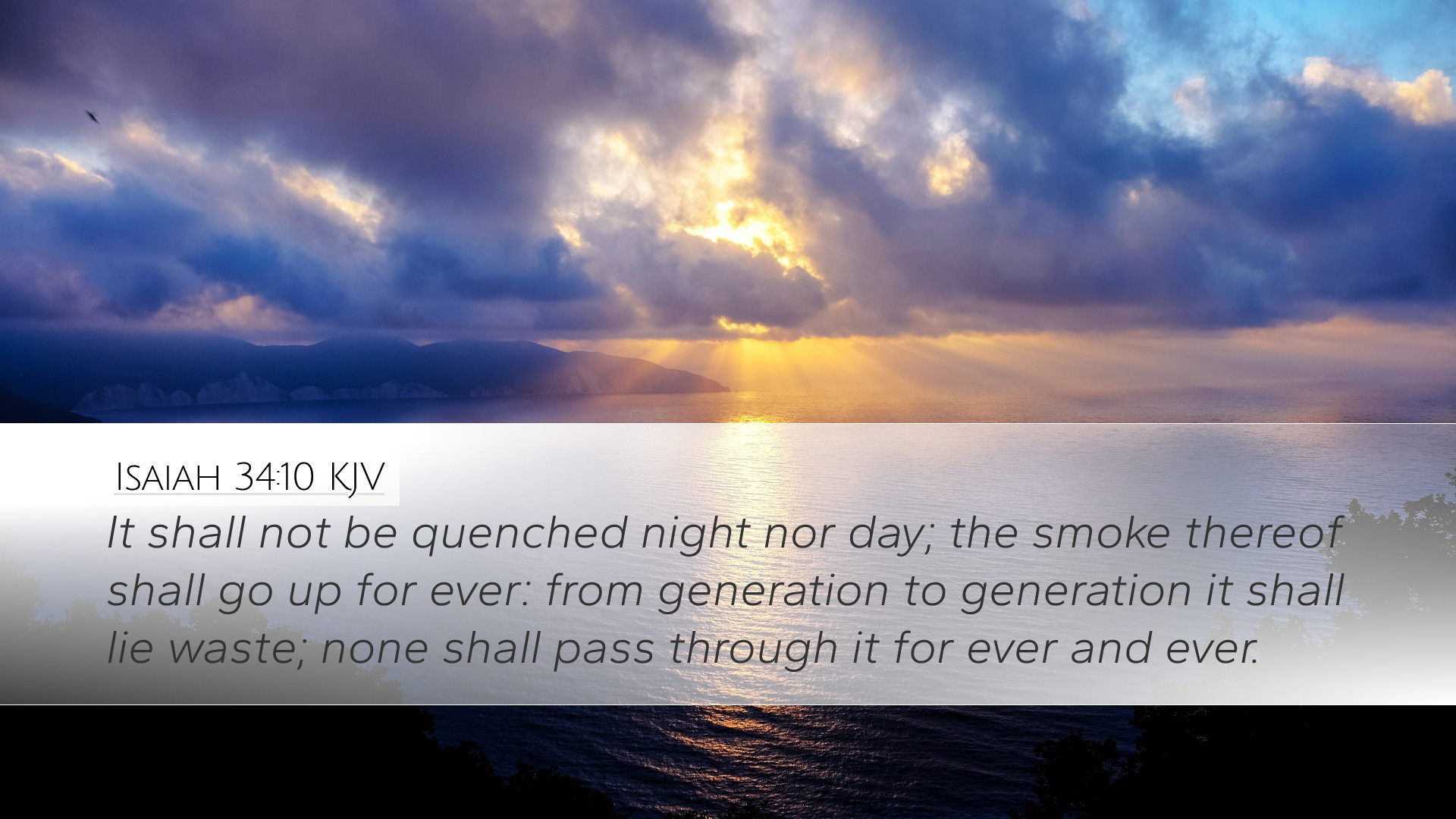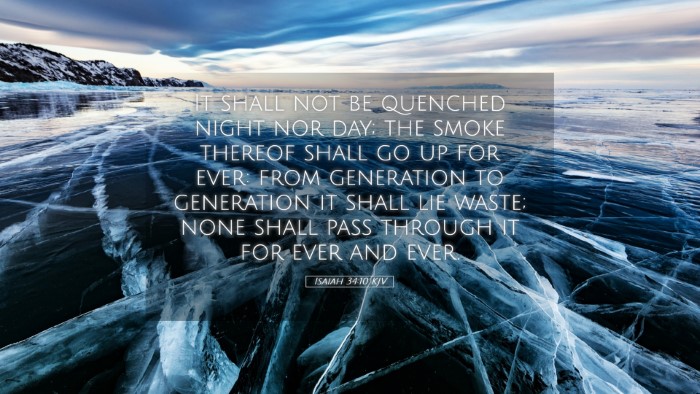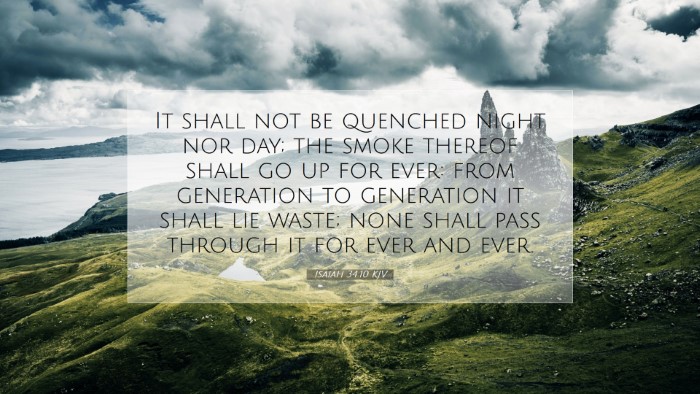Commentary on Isaiah 34:10
Text of Isaiah 34:10 (KJV): "It shall not be quenched night nor day; the smoke thereof shall go up for ever: from generation to generation it shall lie waste; none shall pass through it for ever and ever."
Introduction
Isaiah 34:10 stands as a solemn pronouncement regarding divine judgment and the devastation that follows. In this profound verse, we observe a vivid image of desolation that serves as a stark reminder of God's sovereignty and the consequences of sin. This commentary will delve into insights from esteemed public domain scholars, such as Matthew Henry, Albert Barnes, and Adam Clarke, providing a rich tapestry for understanding this significant passage.
Contextual Analysis
The chapter sets a prophetic tone concerning God's impending judgment upon the nations, particularly focused on Edom. The imagery of fire and smoke in verse 10 symbolizes persistent destruction and divine wrath. Isaiah's references are particularly aimed at showcasing the finality of divine judgment and the desolation that ensues for those who oppose God's purposes.
Historical Background
The historical context of Isaiah includes the Assyrian threat and the eventual Babylonian exile. The prophecy specifically against Edom is significant as Edom represents pride and enmity against Israel. The judgment pronounced in Isaiah 34 serves as a warning not only to Edom but also to all nations that turn away from God.
Theological Insights
Through the lens of the commentators, we can extract profound theological implications from this verse:
-
Divine Judgment: Matthew Henry highlights the certainty and irrevocability of God's judgments. The permanence of the smoke rising confirms that this is not a temporary punishment; rather, it serves as an enduring reminder of God’s justice.
-
Symbolism of Smoke: Albert Barnes notes that the never-ending smoke signifies not only destruction but also an ongoing testimony to the judgment of God. The continued presence of smoke suggests that the consequences of sin have eternal significance.
-
Generational Warnings: Adam Clarke emphasizes that the reference to "generation to generation" indicates a legacy of desolation that remains a warning for future generations. God's judgments are not solely for the immediate but also serve as historical lessons.
Expository Breakdown
“It shall not be quenched night nor day”
This phrase presents the idea of relentless judgment. Matthew Henry elucidates on the unquenchable nature of God’s wrath, suggesting that just as fire consumes without end, so does God’s anger towards persistent sin. The implication is that judgment is constant and unyielding, highlighting God’s holiness.
“The smoke thereof shall go up for ever”
The perpetual ascent of smoke symbolizes continuous degradation and despair. Barnes asserts that this serves as an everlasting documentation of God's judgment. Smoke rising indefinitely becomes a metaphor for unfinished business with God, underscoring the concept of punishment that endures beyond a single generation.
“From generation to generation it shall lie waste”
Here, Clarke emphasizes the lasting impact of divine judgment across generations. This serves as both a warning and a lesson interpreting the long-term consequences of actions taken by individuals and nations. The desolation does not just conclude; it continues to serve as evidence for those who pass by, instilling fear and reverence for God’s law.
Practical Implications
The lessons derived from Isaiah 34:10 offer crucial insights for contemporary readers, particularly pastors, students, and theologians:
-
Awareness of Judgment: Believers must recognize that judgment is certain. The church should teach the seriousness of sin and the unwavering nature of God’s laws.
-
Generational Responsibility: Each generation must consider the implications of their actions. How we live today impacts not only our lives but the fate of those who follow.
-
God’s Sovereignty: The permanence of desolation illustrates God’s ultimate control over history. Despite present circumstances, His judgments, fueled by justice, remind believers of their accountability.
Conclusion
Isaiah 34:10 serves as a poignant reminder of God’s holiness and justice. The insights drawn from public domain commentators shed light on the eternal ramifications of sin and the importance of repentance. Pastors, theologians, and students should reflect on this verse, understanding its implications for spiritual growth, communal responsibility, and earnestness in living a life that honors God.


